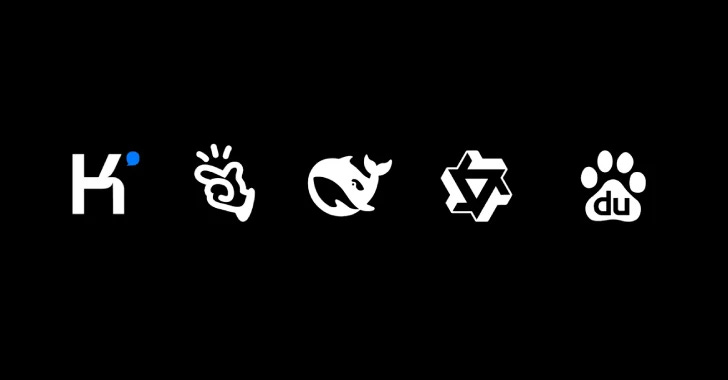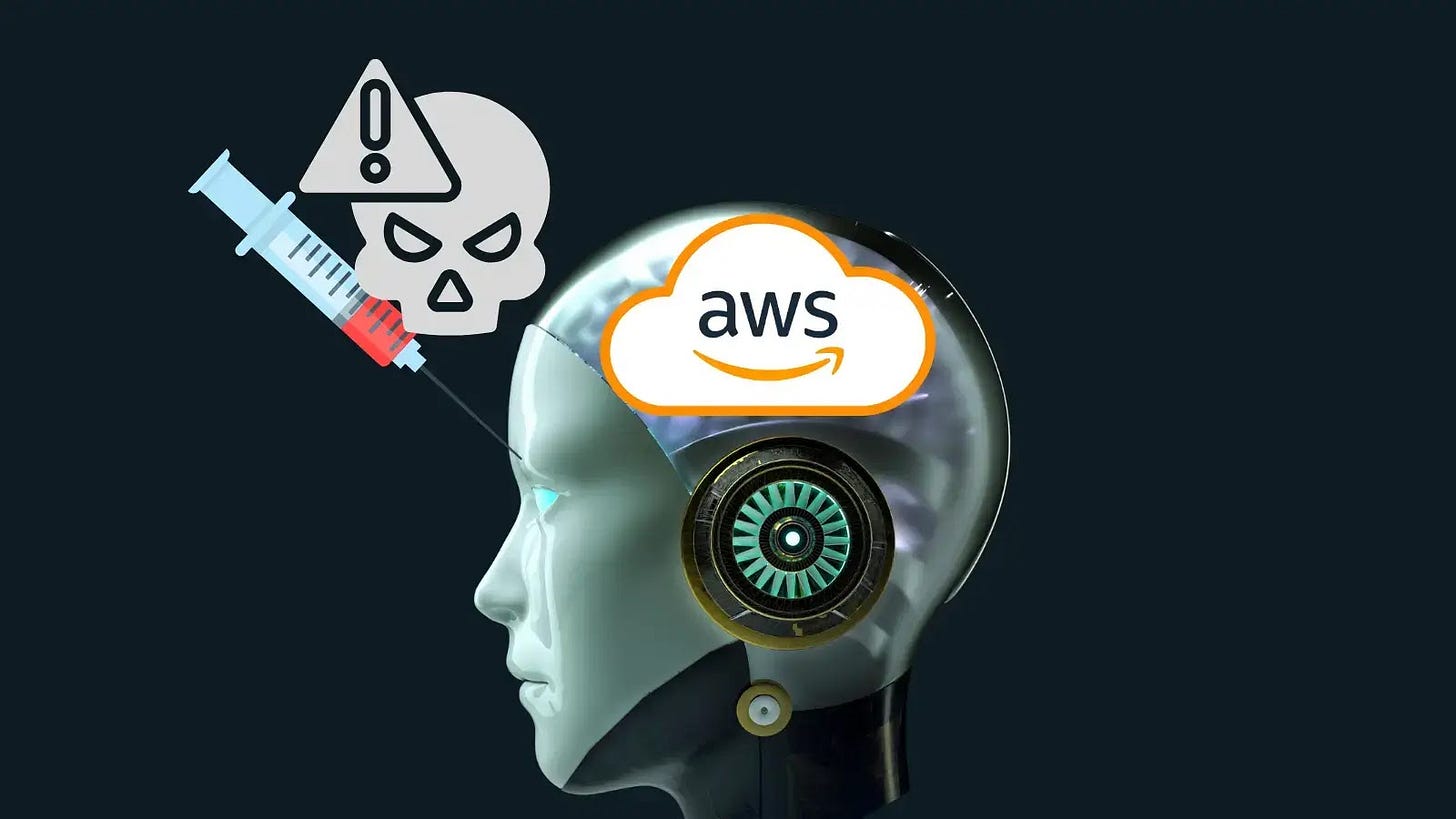Hacked Amazon AI Agent Exposes Security Flaw with Data Wiping Code! (<1 minute read)
Amazon's AI coding assistant, the Q Developer Extension for Visual Studio Code, was recently compromised by a hacker known as 'lkmanka58'. This individual inserted data-wiping code into the extension, which is designed to assist developers with coding tasks.
The malicious code, meant to highlight security vulnerabilities, didn't cause actual harm but raised alarms about coding safety. Following an investigation, Amazon quickly released a clean version of the extension, reassuring users that the previous harmful code was poorly formatted and ineffective.
Despite no significant risks stemming from the breach, users of the affected version are urged to upgrade immediately to ensure their systems remain secure. This incident highlights the importance of implementing stringent security measures in software development.
Redefining the AI Race: Building a Future Beyond Fast Track Competitions! (<1 minute read)
In "Rethinking the Global AI Race," Lt. Gen.(ret.) John Shanahan and Kevin Frazier challenge the notion that AI is merely a sprint for technical superiority.
They argue that true advantage lies in fostering widespread societal adoption and AI literacy, rather than racing to develop the most advanced models. The U.S. should focus on integrating AI into education, defence, and public welfare, cultivating a knowledgeable workforce that can tackle misinformation and economic shifts.
The authors call for a national movement to engage Americans in shaping AI's future, emphasising that this ongoing journey is crucial for national security and economic prosperity. By thinking long-term, the U.S. can transform its approach to AI and solidify its role as a global leader.
Guarding Against the Dark Side of AI: Security Risks and Strategies You Can't Ignore! (<1 minute read)
The rapid rise of AI brings both innovation and peril, especially when it lands in the wrong hands. Cybercriminals are now weaponising AI for malicious activities, such as creating deepfakes and executing sophisticated phishing attacks.
These AI-driven threats include automated cyberattacks, data poisoning, and customised social engineering techniques to exploit trust. To combat these emerging risks, organisations must invest in advanced cybersecurity strategies, including ongoing employee training and robust threat detection systems.
Additionally, navigating an evolving regulatory landscape is crucial for the ethical deployment of AI. As the threat landscape shifts, prioritising cybersecurity within the organisation is essential to safeguard against the growing sophistication of AI-enabled attacks.
AI Fraud Surge: 600 Cases Uncovered, Heightening Cybersecurity Concerns! (<1 minute read)
Researchers from Menlo Security have unveiled a startling rise in AI-related fraud, identifying nearly 600 incidents driven by generative AI. Their annual browser security report highlights a 140% surge in browser-based phishing attacks, with notorious brands like Microsoft and Netflix being most frequently impersonated.
Malicious ads and exploited browser vulnerabilities are key tactics used by cybercriminals, who are now creating nearly 1 million new phishing sites each month. Notably, 75% of phishing links originate from trusted websites, showcasing the sophistication of these threats.
With the shift toward cloud services—where AWS and CloudFlare account for half of exploited instances—it's clear that adapting security measures is more critical than ever to combat this evolving landscape of cyber threats.
AI: The New Frontier of Cyber Threats—Are We Prepared for the Battle Ahead? (<1 minute read)
The rise of artificial intelligence (AI) is revolutionising the landscape of cyber threats, presenting both new vulnerabilities and unprecedented challenges. Hackers are leveraging AI for hyper-targeted attacks and adaptive malware, resulting in a significant increase in phishing incidents.
Meanwhile, organisations face the dual challenge of defending against AI-enhanced threats while ensuring their own AI systems remain secure. Legal frameworks struggle to keep pace, complicating attribution and accountability in the event of an incident.
In response, the U.S.government’s Executive Order 14144 emphasises the need for secure AI development and clear guidelines for risk management. Organisations must proactively address AI risks in their cybersecurity strategies to effectively navigate this evolving threat landscape and safeguard their operations.
America's Bold AI Action Plan: Securing Innovation for a Safer Cyber Future! (<1 minute read)
The R Street Institute's analysis of the Trump administration's "Winning the Race: America’s AI Action Plan" reveals a comprehensive strategy focused on enhancing U.S. leadership in artificial intelligence. Launched on July 23, 2025, the plan emphasises three pillars: accelerating AI innovation, building robust AI infrastructure, and leading international AI diplomacy with a strong cybersecurity framework.
It highlights the urgency of open-source AI as a national security imperative, ensures that cybersecurity is fundamental to infrastructure development, and addresses global threats by proposing stricter export controls. The plan aims to integrate cybersecurity into the core of AI policy, ensuring that America not only leads in technology but does so securely and responsibly, marking a pivotal moment in the ongoing AI race.
Shield Your Data: Tackling Risks of Chinese GenAI Tools in the Workplace! (<1 minute read)
A new analysis by Harmonic Security reveals alarming trends surrounding the unauthorised use of Chinese generative AI tools by employees in the US and UK. The study found that nearly 8% of 14,000 workers relied on platforms like DeepSeek and Kimi Moonshot, often without proper oversight, resulting in over 17 megabytes of sensitive data, including source code and personal information, being uploaded to these services.
With inadequate data policies and potential compliance risks, businesses face a significant challenge as AI usage expands. To mitigate risks, Harmonic offers tools that enforce policy controls in real-time, empowering companies to safeguard sensitive information while still embracing the benefits of AI.
As firms navigate this tech landscape, governance becomes essential for security and compliance.
Sam Altman Warns: AI Voice Cloning Sparks Looming Fraud Crisis in Finance! (<1 minute read)
In a striking warning, OpenAI CEO Sam Altman sounded the alarm about a looming “fraud crisis” in the financial sector. Speaking at a Federal Reserve conference, he highlighted the serious security risks posed by artificial intelligence’s ability to impersonate voices.
Many banks still rely on voiceprints for authentication, a method that Altman deems outdated and vulnerable to AI cloning technologies, which create voice imitations nearly indistinguishable from the real ones. As they manipulate this advancement, criminals could easily bypass security measures.
Altman’s concerns underscore the urgent need for the financial industry to rethink and innovate its verification processes to stay ahead of these sophisticated threats. The dialogue with regulators emphasises the collaborative approach necessary to tackle this emerging dilemma.
Amazon's AI Coding Agent Breached: Hackers Unleash Destructive Commands in Alarming Cyber Attack! (<1 minute read)
In a startling revelation, hackers have infiltrated Amazon’s AI coding assistant, 'Q', injecting destructive commands aimed at wiping users’ computers. This breach not only underscores critical vulnerabilities in Amazon’s AI infrastructure but also highlights a scary trend where cybercriminals target AI-powered development tools.
The hacker's method was alarmingly simple: a deceptive pull request on GitHub led to the integration of malicious code. While the risk of widespread damage appears low, security experts warn that this incident reveals inadequate protective measures within traditional software security protocols.
As AI development tools become central to millions of developers, this attack raises urgent calls for enhanced security frameworks to safeguard these increasingly vulnerable systems.
Unlocking AI Safety: The Essential 10 Questions Every Company Must Ask! (<1 minute read)
A new framework from MIT Sloan offers companies a vital blueprint for building secure AI systems. With growing concerns over AI-related security threats, this guide—crafted by Keri Pearlson and Nelson Novaes Neto—highlights ten strategic questions that help executives address vulnerabilities early in the development process.
These questions guide organisations in aligning AI initiatives with business goals, assessing risks, and ensuring ethical standards and cybersecurity measures are embedded from the start. Tested successfully with C6 Bank, this framework enables innovation without compromising security and trust.
As businesses increasingly adopt AI, prioritising security in design will be paramount to avoiding costly mistakes and maintaining stakeholder confidence. Pearlson emphasises the importance of asking the right questions early on for a resilient future.










